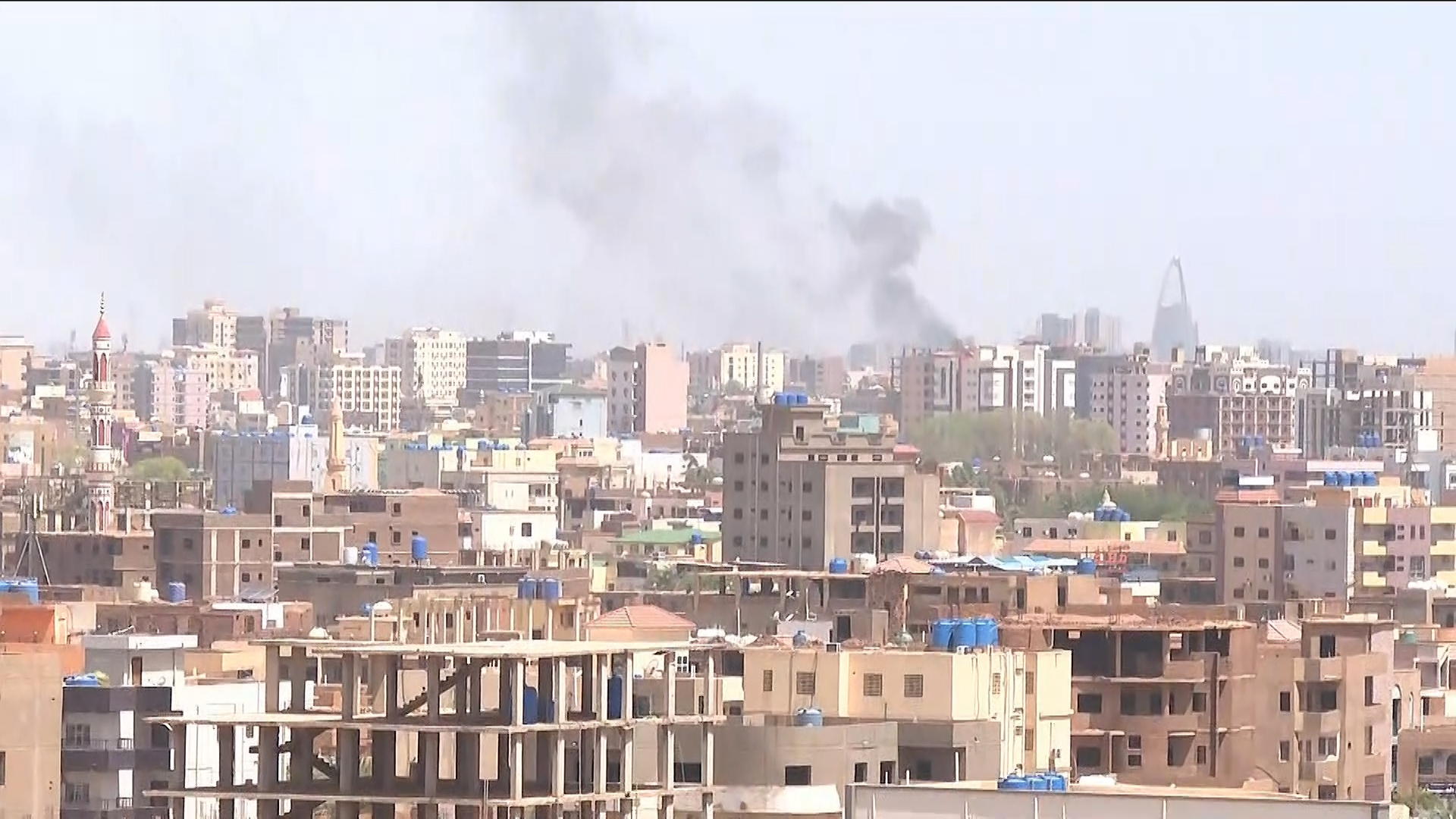Sporadic clashes between Sudan's military and the Rapid Support Forces (RSF) continued on Thursday, dissipating relative calm in the capital Khartoum, raising the risk of a week-long internationally brokered truce breaking amid growing concerns about a humanitarian crisis.
Comoros President and current Chairman of the African Union Azali Osman said the war in Sudan was dangerous not only for Sudan, but for the entire African continent.
He pointed out in an exclusive interview with Al Jazeera that the parties to the conflict in Sudan must know that there is no winner in this war, and that it must stop.
For its part, the US State Department said that Washington monitored violations of the ceasefire agreement in Sudan and communicated with both parties to the conflict about them.
She pointed out that these violations included the use of artillery, fighter jets and drones, stressing that it will not hesitate to apply sanctions in the event of non-compliance with the truce in Sudan.
The ceasefire, which is being monitored by Saudi Arabia and the United States as well as the warring parties, was reached after five weeks of fighting in Khartoum and violence in other parts of Sudan, including the western Darfur region.
Fighting between Sudan's military and the paramilitary Rapid Support Forces (RSF) has exacerbated the humanitarian crisis, forced more than 1.3 million people to flee their homes, and threatens to destabilize an already fragile region.
The army, led by General Abdel Fattah al-Burhan, relies on air power, while the Rapid Support Forces (RSF), led by Mohamed Hamdan Dagalo, known as Hemedti, have deployed and taken shelter in the streets of Khartoum.
It was not clear how much progress either side had made in recent weeks. Residents said clashes broke out on Wednesday in Khartoum and other cities.
U.N. refugee agency Toby Harward said an armed group had surrounded Zalingei, the capital of Central Darfur state, and called on authorities to regain control of the city.
Telecommunications were cut off, and gangs roaming the city on motorcycles attacked hospitals, government headquarters, aid agency offices, banks and homes, he said.
A similar situation was reported in El Geneina (the capital of West Darfur state), where communications were also cut off for a few days after hundreds were killed in militia attacks.
Failed truce
Saturday's ceasefire agreement came after talks in Jeddah mediated by Saudi Arabia and the United States, while previous ceasefire agreements failed to end the fighting.
In comments late on Wednesday, the army and the RSF accused each other of violating the agreement.
The army accused the RSF of violating the ceasefire and of launching attacks on the mint, army air bases and several cities west of the capital. The RSF said it had to defend itself against army ground, artillery and air strikes.
Humanitarian Aid
Humanitarian organizations are ready to provide aid to more than 4 million people, but bureaucratic hurdles and security problems are hampering distribution, the UN Office for the Coordination of Humanitarian Affairs (OCHA) said.
An aid official told Reuters that of the 168 trucks ready to deliver aid, only a handful were moving from Port Sudan to Gedarif, Kassala and Gezira.
The International Committee of the Red Cross (ICRC) said in a statement that the anesthetics, antibiotics and other medical supplies it donated are now being distributed to seven hospitals in Khartoum.
Alfonso Verdo Perez, head of the Commission's mission in Sudan, said: "Only 20 per cent of the health facilities in Khartoum are currently functioning, and this is a real breakdown of a much-needed system at this time."
"Hospitals are in dire need of water, electricity and a safe environment for their patients and staff. "We call on both parties to respect the work of medical personnel, as people's lives depend on them."
Many residents struggle to survive, facing prolonged water and electricity cuts, collapsing health services, and widespread chaos and looting.
More than a million people have been displaced inside Sudan, and 319,<> have fled to neighbouring countries, some of which suffer from poverty and a similar history of internal conflict.

